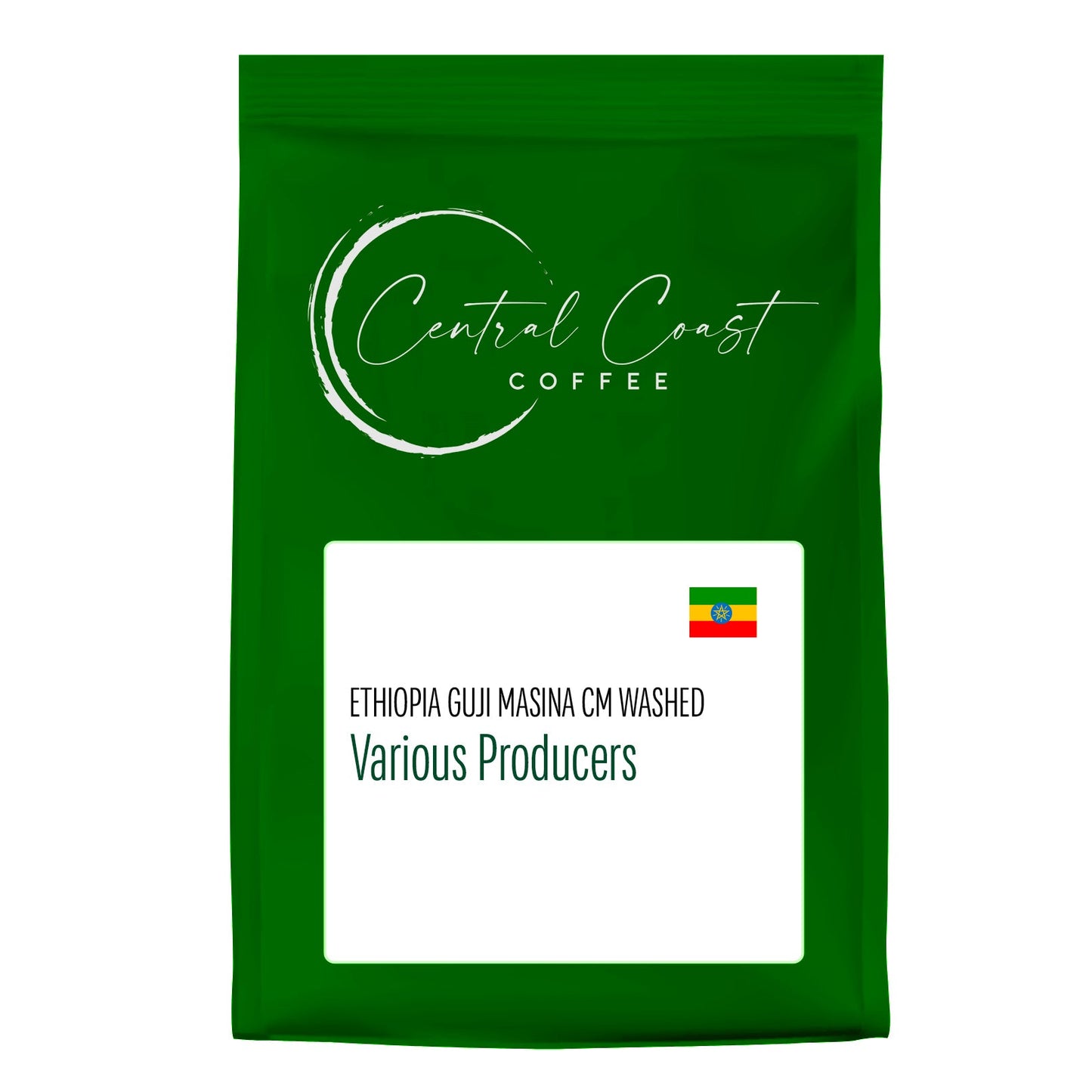
This coffee’s roasted in our filter style — meaning it’s designed to shine as black coffee rather than with milk. That doesn’t mean you have to brew it as a pour-over though. You can make it however you like — espresso, moka pot, AeroPress or anything in between. We simply roast it a little lighter to highlight the bean’s origin flavours giving you a cup that’s clean, vibrant and full of clarity.
Lighter roasting keeps more of the natural acidity and sweetness intact which makes for a beautifully expressive black coffee — and this one happens to play nicely with milk too. Expect a softer balanced cup where the sweetness carries through without turning sharp.
If you prefer your milk coffee with richer caramel, toffee or nutty flavours you might enjoy our espresso range more. Those roasts are taken a little darker to bring out deeper sweetness and balance beautifully with milk.
Origin and Sourcing
?
?
?
Roast Details
?
?
?
?
?
?
?
Taste Profile
?
?
Ethiopian | Oromia | Various Producers | Heirloom CM Washed CMW Diamond 1424 | Signature Series - When is peak freshness?
Light Roast - Roasted on Roest L100 Ultra
More Info About This Coffee
- Coffees grow in small farmers backyards, known as “garden coffee”
- Hand sorting of only ripe, red cherries at 20-22º Brix o Cherries are placed inside sealed tanks and filled with CO2 pushing oxygen out
- Controlled yeast activity, temperature and humidity of tank
- Anaerobic fermentation time creates a Diamond profile that is delicate, structured, and refined
- Beans are washed before being laid on beds to dry
- Drying takes typically 15-20 days
- Our local partners do further quality control. As a minimum, a triple pass through a colour sorter and a triple-pass through hand-sorting tables
More About The Masina Kebele
In the Masina Kebele in the Adola Woreda lies a washing station that sits at the heart of Project Origin. Built in 2017 as a joint project with our great local export partners, Primrose, the Guji Masina washing station was the site where our very first Ethiopian Carbonic Maceration processed coffees were produced. We learned a vast amount from the experience of trying and refining the CM
process at this station. Nearby the washing station lies a river, that locals in the community wade through to reach the town and the school. Project Origin have teamed up with Primrose once again to fund the construction of a bridge over this beautiful river, hoping that this improvement in infrastructure will help the community in their daily travels and needs rather than taking the 1-2 hour walk around to the
nearest crossing. The coffees from this woreda are already world-known, feeding into the romanticism of Ethiopian coffees, and when the 2018 World Barista Championship is won utilising a coffee from this station, it becomes impossible not to include this washing station in your collection.
Coffee in Ethiopia:
While Ethiopia is famous as coffee’s birthplace, today it remains a specialty coffee industry darling for its incredible variety of flavors. While full traceability has been difficult in recent history, new regulations have made direct purchasing possible. We’re partnering directly with farmers to help them produce top quality specialty lots that are now completely traceable, adding value for farmers and roasters, alike.
The exceptional quality of Ethiopian coffee is due to a combination of factors. The genetic diversity of coffee varieties means that we find a diversity of flavor, even between (or within) farms with similar growing conditions and processing. In addition to varieties, processing methods also contribute to end quality. The final key ingredients for excellent coffee in Ethiopia are the producing traditions that have created the genetic diversity, processing infrastructure and great coffee we enjoy today.
Most producers in Ethiopia are smallholders, and the majority continue to cultivate coffee using traditional methods. As a result, most coffee is grown with no chemical fertilizer or pesticide use. Coffee is almost entirely cultivated, harvested and dried using manual systems.
SKU: eth_masina_nat_160g
Package Weight: 200g

